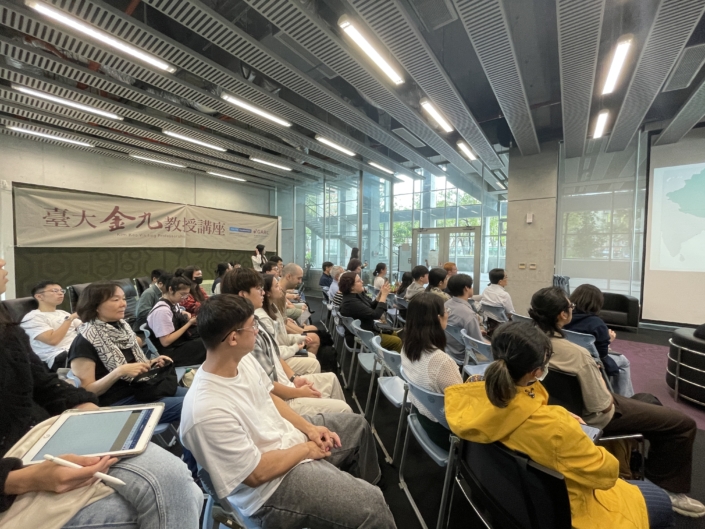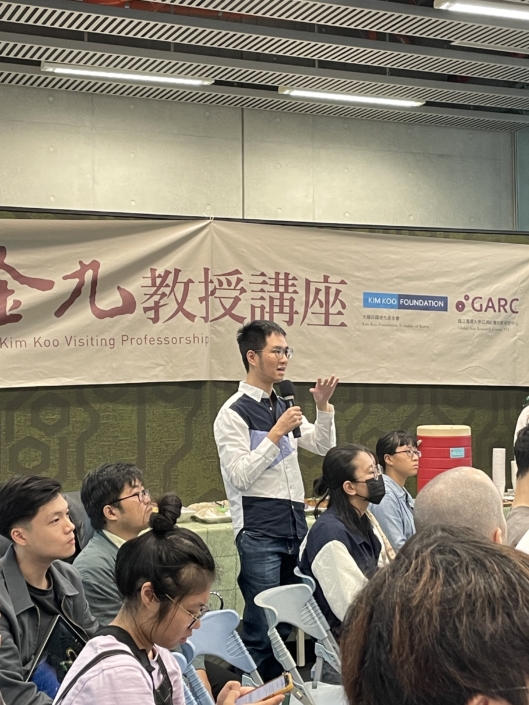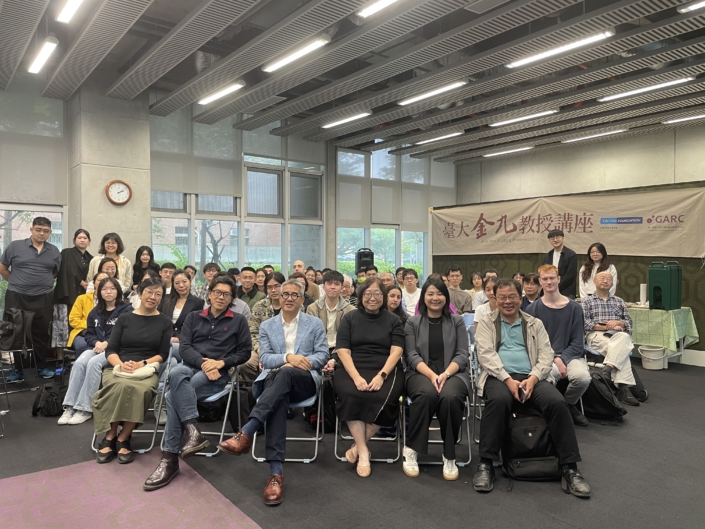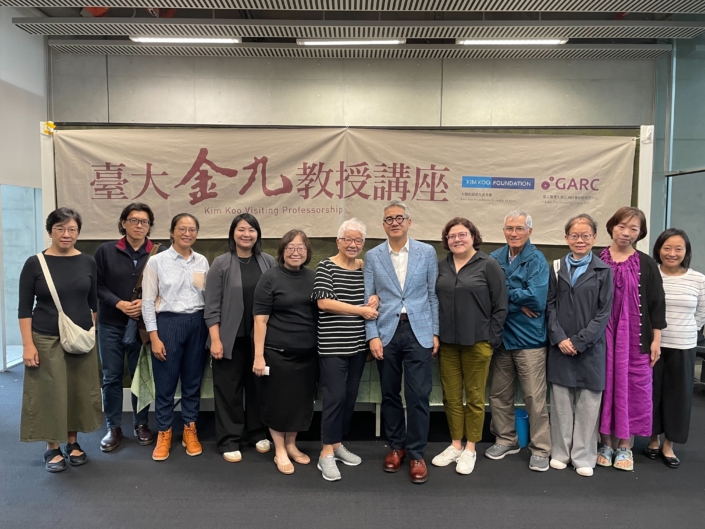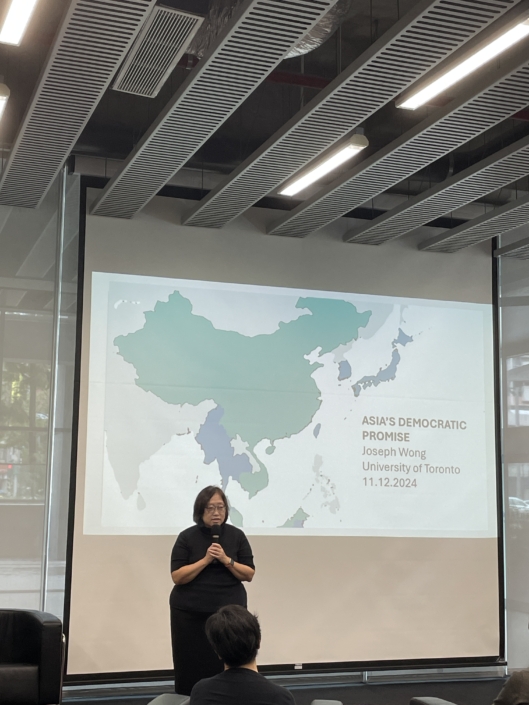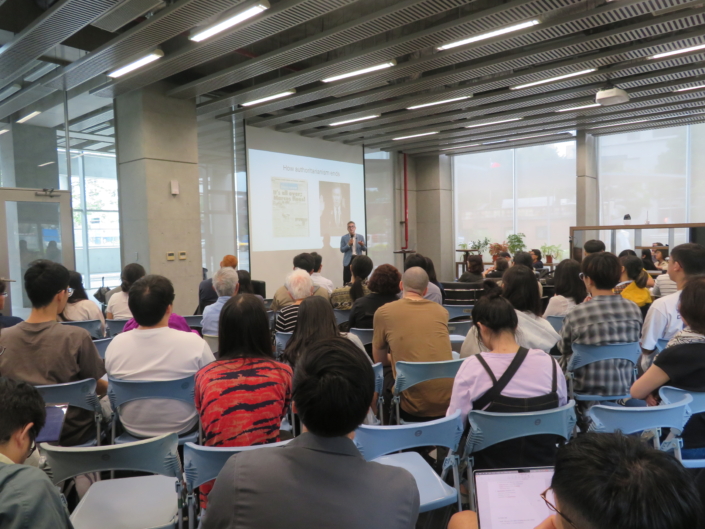About Kim-Koo NTU Professor Public Talk
Professor Joseph Wong delivered a public lecture titled “Asia’s Democratic Promise” on November 12. Despite the cold and damp weather, the event attracted a lively audience of over 80 participants, most of whom attended in person. The Q&A session was dynamic, with enthusiastic discussions throughout the hybrid format lecture.
The lecture was based on the book From Development to Democracy: The Transformations of Modern Asia, co-authored by Professor Wong and Professor Dan Slater from the University of Michigan. The book explores the intricate relationship between economic development and democratization in contemporary Asia. During the lecture, Professor Wong addressed a long-standing debate in comparative politics: why do some Asian countries become more democratic alongside economic growth, while others do not?
Wong challenged the modernization theory, which assumes that economic development inevitably leads to democratic reform. While he acknowledged the importance of economic development for democracy, he argued that successful democratization hinges on the rational choices of governing elites. By examining the historical political and economic experiences of 12 “developing Asia” countries, Wong demonstrated that many authoritarian regimes initiated democratic reforms not out of desperation but because their elites had confidence in their political strength. He identified two critical factors: “victory confidence,” or the belief that they could win democratic elections, and “stability confidence,” or the expectation that political and economic stability would endure post-democratization. Wong described this phenomenon as a “transition to democracy through strength.”
Specifically, Wong argued that rapid economic growth bolsters the power of authoritarian regimes, which in turn fosters confidence among ruling elites. Authoritarian regimes constantly receive signals about their strength, ranging from election outcomes and domestic unrest to economic conditions and geopolitical shifts. Some signals reassure them that democratization would not endanger their rule, while others warn of instability. When these signals intersect, regimes reach a “bittersweet spot”—a moment when authoritarian strategies seem ineffective, but democratization does not appear suicidal.
At such pivotal moments, if elites choose reform, democratization can occur under authoritarian leadership, as seen in Taiwan, Japan, and South Korea. Conversely, missing this critical juncture, as with Malaysia’s ruling party, often results in failed transitions.
In summary, Wong emphasized that the successful democratization of countries like Taiwan, Japan, and South Korea was driven by governing elites who evaluated democracy as compatible with their interests. Economic growth provided the foundation of strength needed to pursue reform with confidence.
However, Wong noted that many surviving and even thriving authoritarian regimes, such as China, are also powerful enough to maintain their rule. He argued that China’s best chance for democratization was during the 1989 Tiananmen incident, but at the time, the Chinese Communist Party (CCP) lacked the strength and confidence needed for such a transition. Instead, they focused on accumulating power through economic reforms, missing the bittersweet spot.
Now, more than three decades later, Wong questioned whether China has reached a new critical juncture for democratization. He concluded that the CCP is still receiving more “sweet” signals than “bitter” ones, with no clear signs of decline. While the CCP may have both victory confidence and stability confidence, the incentives for democratization remain low.
Nonetheless, Wong did not lose hope for China’s democratic future. He suggested that the CCP might learn from the Soviet Union’s experience—delaying democratization risks losing control over the transition entirely. Rather than expecting authoritarian regimes to collapse internally or exerting pressure on dictators, Wong advocated for demonstrating that seizing the initiative in democratization could better align with their own interests.
Note taken by Guan-Jie Chen, edited by Wei-Yun Chung



